Browser does not support script.
- Undergraduate
- Executive education
- Study Abroad
- Summer schools
- Online certificate courses
- International students
- Meet, visit and discover LSE

MPhil/PhD Environmental Economics
- Graduate research
- Department of Geography and Environment
- Application code L7ZR
- Starting 2024
- Home full-time: Closed
- Overseas full-time: Closed
- Location: Houghton Street, London
The MPhil/PhD in Environmental Economics programme offers the chance to undertake a substantial piece of research which makes an original contribution to the field of environmental economics and is worthy of publication.
Students are first registered on the MPhil, and will need to meet certain requirements to be upgraded to PhD student status. The programme culminates with an examination/viva in which your work is scrutinised by two experts in the area of research in which you have specialised.
Over the last two decades, the tools of economic analysis have become indispensable in analysing environmental problems and providing the basis for developing sustainable policy solutions. With rising employment opportunities in this field, student demand has also grown for doctoral courses offering rigorous, state-of-the-art training in environmental, natural resource and climate change economics. The MPhil/PhD Programme in Environmental Economics responds to this increased demand and builds on growing research at LSE in environmental, resource and climate change economics, and other related subjects. In particular, the Department of Geography and Environment currently has the largest group of full-time academic environmental economists in any UK university, and one of the largest internationally. Importantly, the Department enjoys close links with the Grantham Research Institute on Climate Change and the Environment and the ESRC Centre for Climate Change Economics and Policy.
The MPhil/PhD Environmental Economics aims to:
- provide advanced knowledge of the principles and conceptual foundations of environmental economics
- equip you with the analytical tools and methodological understanding needed to develop original research in the field
- expose you to the most recent developments and debates in environmental and natural resource economics
- prepare you for careers in research and academia, international organisations, the private/consultancy sector, NGOs, or governmental institutions.
As well as taking your time to look through the sections below, we also encourage you to take a look at our FAQs , which cover a range of frequently asked questions, including on the application process and funding.
Programme details
| Start date | Introductory Course in Mathematics and Statistics begins in August 2024 |
|---|---|
| Application deadline | . However, please note the funding deadlines |
| Duration | Three-four years (minimum 2) full-time. Please note that LSE allows part-time PhD study only under limited circumstances. Please see for more information. If you wish to study part-time, you should mention this (and the reasons for it) in your statement of academic purpose, and discuss it at interview if you are shortlisted. |
| Financial support | LSE PhD Studentships, ESRC funding (see 'Fees and funding') Applications submitted after the funding deadline will not be considered for funding, but will be considered for admission |
| Minimum entry requirement | Taught master’s degree, with a minimum of 65 per cent average and at least 70 in dissertation, in a related discipline |
| GRE/GMAT requirement | None |
| English language requirements | Research (see 'Assessing your application') |
| Location | Houghton Street, London |
For more information about tuition fees and entry requirements, see the fees and funding and assessing your application sections.
Entry requirements
Minimum entry requirements for mphil/phd environmental economics.
The minimum entry requirement for this programme is a taught master’s degree (or equivalent), with a minimum of 65 per cent average and at least 70 in dissertation, in a related discipline.
Competition for places at the School is high. This means that even if you meet our minimum entry requirement, this does not guarantee you an offer of admission.
The programme is offered in the following alternative formats:
Either the stand-alone MPhil/PhD in Environmental Economics (+3 route)
Or Combined with the MSc in Environmental Economics and Climate Change progressing onto the MPhil/PhD in Environmental Economics (1+3 route)
+ 3 Route: MPhil/PhD in Environmental Economics (2-4 years)
The minimum entry requirement for this programme is a taught master’s degree (or equivalent), with a minimum of 65 per cent average and at least 70 in dissertation, in a related discipline.
1+3 Route: MSc in Environmental Economics and Climate Change (1 year) + MPhil/PhD in Environmental Economics (2-4 years)
The 1+3 route – suitable if you do not hold a relevant postgraduate degree – is aimed at students graduating with an undergraduate degree preferably in economics, or otherwise with a background in economic analysis and strong analytical, quantitative and technical skills. (See Entrance requirements for the MSc in Environmental Economics and Climate Change)
The 1+3 Combined PhD Programme is only available as part of an ESRC Funded pathway. The 1+3 scheme provides funding for a one year research training master's linked to a PhD programme and is designed for students who have not already completed an ESRC recognised programme of research training. The ESRC 1+3 scholarship covers the master’s and the PhD programme and so takes up to 5 years in total.
Progression from the master’s onto the PhD programme is dependent upon performance in the master’s programme (Students must score 65% overall and at least 70 in their dissertation to comply with the department’s usual PhD entry criteria).
To apply for the 1+3 route, an application must be submitted for the relevant master’s programme, including a research proposal for the PhD aspect of the pathway. Applicants must also indicate their wish to be considered for the 1+3 pathway and associated funding within their personal statement. Students who apply for the PhD programme directly, will not be considered for the 1+3 pathway.
If you have studied or are studying outside of the UK then have a look at our Information for International Students to find out the entry requirements that apply to you.
Assessing your application
We welcome applications for research programmes that complement the academic interests of members of staff at the School, and we recommend that you investigate staff research interests before applying, on our people page .
We carefully consider each application on an individual basis, taking into account all the information presented on your application form, including your:
- academic achievement (including existing and pending qualifications) - statement of academic purpose - references - CV - research proposal - sample of written work
See further information on supporting documents You may also have to provide evidence of your English proficiency. You do not need to provide this at the time of your application to LSE, but we recommend that you do. See our English language requirements .
When to apply
The application deadline for this programme is 23 May 2024 . However to be considered for any LSE funding opportunity, you must have submitted your application and all supporting documents by the funding deadline. See the fees and funding section for more details.
Fees and funding
Every research student is charged a fee in line with the fee structure for their programme. The fee covers registration and examination fees payable to the School, lectures, classes and individual supervision, lectures given at other colleges under intercollegiate arrangements and, under current arrangements, membership of the Students' Union. It does not cover living costs or travel or fieldwork.
Tuition fees 2024/25 for MPhil/PhD Environmental Economics
Home students: £4,786 for the first year Overseas students: £22,632 for the first year
The fee is likely to rise over subsequent years of the programme. The School charges home research students in line with the level of fee that the Research Councils recommend. The fees for overseas students are likely to rise in line with the assumed percentage increase in pay costs (ie, 4 per cent per annum).
The Table of Fees shows the latest tuition amounts for all programmes offered by the School.
The amount of tuition fees you will need to pay, and any financial support you are eligible for, will depend on whether you are classified as a home or overseas student, otherwise known as your fee status. LSE assesses your fee status based on guidelines provided by the Department of Education.
Further information about fee status classification.
Scholarships, studentships and other funding
The School recognises that the cost of living in London may be higher than in your home town or country, and we provide generous scholarships each year to home and overseas students.
This programme is eligible for LSE PhD Studentships , and Economic and Social Research Council (ESRC) funding . Selection for the PhD Studentships and ESRC funding is based on receipt of an application for a place – including all ancillary documents, before the funding deadline.
Funding deadline for LSE PhD Studentships and ESRC funding: 15 January 2024 .
In addition to our needs-based awards, LSE also makes available scholarships for students from specific regions of the world and awards for students studying specific subject areas. Find out more about financial support.
External funding
There may be other funding opportunities available through other organisations or governments and we recommend you investigate these options as well.
Further information
Fees and funding opportunities
Information for international students
LSE is an international community, with over 140 nationalities represented amongst its student body. We celebrate this diversity through everything we do.
If you are applying to LSE from outside of the UK then take a look at our Information for International students .
1) Take a note of the UK qualifications we require for your programme of interest (found in the ‘Entry requirements’ section of this page.
2) Go to the International Students section of our website.
3) Select your country.
4) Select ‘Graduate entry requirements’ and scroll until you arrive at the information about your local/national qualification. Compare the stated UK entry requirements listed on this page with the local/national entry requirement listed on your country specific page
Programme structure and courses
In addition to progressing with your research, you are expected to take the listed training and transferable skills courses. You may take courses in addition to those listed, and should discuss this with your supervisor.
(* denotes a half unit)
Training courses Compulsory (not examined) Staff/Research Students Seminars Provides background sessions for MPhil/PhD students in their first year of study. It also provides the forum in which first year full-time and second year part-time MPhil/PhD students must present their work in advance of submitting their major review documents.
Compulsory (examined)
Students cannot repeat courses which they have already taken. Where such courses are compulsory for this programme, students may take alternative courses, subject to agreement with supervisors and approval from the programme director.
Microeconomics Develops the basic tools for analysing problems of resource allocation used by economists working in research, government and business.
Introductory Course in Mathematics and Statistics Provides students with the essential mathematical, statistical, economic and econometric background for the core Economics courses of these programmes.
Students who have previously taken this course, or an equivalent course at another institution, may ask for the requirement to take Microeconomics and Introductory Course in Mathematics and Statistics to be waived. Environmental and Resource Economics This course seeks to develop a rigorous treatment of the theory of environmental and natural resource economics, and to show how formal economic thinking can assist real world policymaking in areas such as climate change, ecosystem & biodiversity conservation and water resource management. Advanced research methods course(s) to the value of one unit from a range of options
Transferable skills courses Compulsory (not examined) Research Project Seminar Presentations by research students of aspects of their own research, stressing problems of theory, methodology and techniques.
Second year
Training courses Compulsory (not examined) Staff/Research Students Seminars Provides background sessions for MPhil/PhD students in their first year of study. It also provides the forum in which first year full-time and second year part-time MPhil/PhD students must present their work in advance of submitting their major review documents.
Transferable skills courses Compulsory (not examined) Research Project Seminar Presentations by research students of aspects of their own research, stressing problems of theory, methodology and techniques.
Fourth year
Transferable skills courses Compulsory (not examined) Research Project Seminar Presentations by research students of aspects of their own research, stressing problems of theory, methodology and techniques.
At the end of your second year (full-time), you will need to satisfy certain requirements and if you meet these, will be retroactively upgraded to PhD status.
For the most up-to-date list of optional courses please visit the relevant School Calendar page.
You must note however that while care has been taken to ensure that this information is up to date and correct, a change of circumstances since publication may cause the School to change, suspend or withdraw a course or programme of study, or change the fees that apply to it. The School will always notify the affected parties as early as practicably possible and propose any viable and relevant alternative options. Note that the School will neither be liable for information that after publication becomes inaccurate or irrelevant, nor for changing, suspending or withdrawing a course or programme of study due to events outside of its control, which includes but is not limited to a lack of demand for a course or programme of study, industrial action, fire, flood or other environmental or physical damage to premises.
You must also note that places are limited on some courses and/or subject to specific entry requirements. The School cannot therefore guarantee you a place. Please note that changes to programmes and courses can sometimes occur after you have accepted your offer of a place. These changes are normally made in light of developments in the discipline or path-breaking research, or on the basis of student feedback. Changes can take the form of altered course content, teaching formats or assessment modes. Any such changes are intended to enhance the student learning experience. You should visit the School’s Calendar , or contact the relevant academic department, for information on the availability and/or content of courses and programmes of study. Certain substantive changes will be listed on the updated graduate course and programme information page.
Supervision, progression and assessment
Supervision.
You will either be allocated a principal supervisor and a review supervisor, or two joint supervisors. One or both will be specialist in your chosen research field, though not necessarily in your topic. The Department encourages – whenever possible – joint-supervision arrangements. However, please confirm your supervisory arrangements during your first meeting with your supervisor(s).
Joint supervisors will have a joint leading role throughout your studies, and you will be able to meet them separately or jointly. Students with a main and a review supervisor should be aware that the main supervisor will have a leading supervisory role during the doctoral studies, whereas the review supervisor will be involved less frequently, being primarily responsible for progress monitoring and participating in review and upgrading decisions (see below). However, please keep your review supervisor abreast of your progress throughout the year and discuss with him/her any matters arising as soon as possible.
Progression and assessment
Once on the MPhil/PhD programme you will go through a First Year Progress Review taking place in the Spring Term of your first research year. This is Year 1 for students in the +3 programme and Year 2 for students in the 1+3 programme. For the First Year Progress Review, you must submit a written progress report containing an extensive and updated research proposal (typically including an introduction to the topic and motivation for the research; aims and objectives/research questions; contribution to knowledge; summary of methods to be used; and outline of the work to be done) and either a comprehensive literature review or a substantive draft of a chapter/paper as evidence of progress made during the year. Normally, there will be a progress review meeting between you and the supervisors to discuss the written material presented. The work has to reach an acceptable standard to enable you to progress. There is provision for a second Supplementary Review in cases where there are doubts as to whether progress has been sufficient to allow entry to the second year (third year of the 1+3 programme). Progression to the second year (third year of the 1+3 programme) is also dependent on you having passed all required examinations and obtained at least one merit, and having presented your work satisfactorily in the doctoral presentation workshops.
All research students are initially registered for an MPhil and have to be upgraded to PhD status. The upgrade from MPhil to PhD usually occurs during the second year of full-time registration. This is Year 2 for students in the +3 programme and Year 3 for students in the 1+3 route. The exact timing depends on your progress. You are required to submit a formal written upgrade report consisting of an extensive revised research proposal, two substantive draft papers/chapters, of which one can be a literature review, and a detailed plan for completion. You will be asked to discuss your research paper/thesis outline during an Upgrade Meeting in front of an Upgrading Committee normally formed by your main supervisor, your review supervisor and a third member of staff with relevant expertise. The material is evaluated by the Upgrading Committee, who will recommend transferral to PhD registration if your work is judged to be of sufficient quality and quantity. The upgrade is also dependent on you having completed all required training courses and having made a satisfactory research presentation in your doctoral presentation workshop.
In addition to these formal arrangements, each year during the Spring Term and throughout the course of your studies, you and your supervisors have to complete a yearly Progress Report Form, detailing progress made, problems arising and plan/timeline for completion. The forms are sent to the relevant Doctoral Programme Director for approval before you are able to re-register for the following session. If perceived lack of progress is identified, it can trigger a more formal annual review of progress in which you will be asked to produce specific written documents to be evaluated by a review panel.
Student support and resources
We’re here to help and support you throughout your time at LSE, whether you need help with your academic studies, support with your welfare and wellbeing or simply to develop on a personal and professional level.
Whatever your query, big or small, there are a range of people you can speak to who will be happy to help.
Department librarians – they will be able to help you navigate the library and maximise its resources during your studies.
Accommodation service – they can offer advice on living in halls and offer guidance on private accommodation related queries.
Class teachers and seminar leaders – they will be able to assist with queries relating to specific courses.
Disability and Wellbeing Service – they are experts in long-term health conditions, sensory impairments, mental health and specific learning difficulties. They offer confidential and free services such as student counselling, a peer support scheme and arranging exam adjustments. They run groups and workshops.
IT help – support is available 24 hours a day to assist with all your technology queries.
LSE Faith Centre – this is home to LSE's diverse religious activities and transformational interfaith leadership programmes, as well as a space for worship, prayer and quiet reflection. It includes Islamic prayer rooms and a main space for worship. It is also a space for wellbeing classes on campus and is open to all students and staff from all faiths and none.
Language Centre – the Centre specialises in offering language courses targeted to the needs of students and practitioners in the social sciences. We offer pre-course English for Academic Purposes programmes; English language support during your studies; modern language courses in nine languages; proofreading, translation and document authentication; and language learning community activities.
LSE Careers – with the help of LSE Careers, you can make the most of the opportunities that London has to offer. Whatever your career plans, LSE Careers will work with you, connecting you to opportunities and experiences from internships and volunteering to networking events and employer and alumni insights.
LSE Library – founded in 1896, the British Library of Political and Economic Science is the major international library of the social sciences. It stays open late, has lots of excellent resources and is a great place to study. As an LSE student, you’ll have access to a number of other academic libraries in Greater London and nationwide.
LSE LIFE – this is where you should go to develop skills you’ll use as a student and beyond. The centre runs talks and workshops on skills you’ll find useful in the classroom; offers one-to-one sessions with study advisers who can help you with reading, making notes, writing, research and exam revision; and provides drop-in sessions for academic and personal support. (See ‘Teaching and assessment’).
LSE Students’ Union (LSESU) – they offer academic, personal and financial advice and funding.
PhD Academy – this is available for PhD students, wherever they are, to take part in interdisciplinary events and other professional development activities and access all the services related to their registration.
Sardinia House Dental Practice – this offers discounted private dental services to LSE students.
St Philips Medical Centre – based in Pethwick-Lawrence House, the Centre provides NHS Primary Care services to registered patients.
Student Services Centre – our staff here can answer general queries and can point you in the direction of other LSE services.
Student advisers – we have a Deputy Head of Student Services (Advice and Policy) and an Adviser to Women Students who can help with academic and pastoral matters.
Student life
As a student at LSE you’ll be based at our central London campus. Find out what our campus and London have to offer you on academic, social and career perspective.
Student societies and activities
Your time at LSE is not just about studying, there are plenty of ways to get involved in extracurricular activities . From joining one of over 200 societies, or starting your own society, to volunteering for a local charity, or attending a public lecture by a world-leading figure, there is a lot to choose from.
The campus
LSE is based on one campus in the centre of London. Despite the busy feel of the surrounding area, many of the streets around campus are pedestrianised, meaning the campus feels like a real community.
Life in London
London is an exciting, vibrant and colourful city. It's also an academic city, with more than 400,000 university students. Whatever your interests or appetite you will find something to suit your palate and pocket in this truly international capital. Make the most of career opportunities and social activities, theatre, museums, music and more.
Want to find out more? Read why we think London is a fantastic student city , find out about key sights, places and experiences for new Londoners . Don't fear, London doesn't have to be super expensive: hear about London on a budget .
We prepare students for a variety of careers: in academia; international organisations such as the World Bank, OECD, UNEP or European Commission; private/consultancy sector (eg, renewable energy firms, water companies, environment consultancies, etc), NGOs or high-profile positions in governmental institutions.
Previous graduates of the programme have gone on to positions in the following institutions:
- International institutions: World Bank in Washington DC, The European Commission
- Consultancy : Vivid economics (London)
- Academia and research: Assistant Professor in Economics, University of Virginia; Brighton University; Grantham Research Institute
- NGOs: Flowminder Foundation, Stockholm
Further information on graduate destinations for this programme
Support for your career
LSE Careers has a wide range of resources available to assist students in their job search. Find out more about the support available to students through LSE Careers .
Find out more about LSE
Discover more about being an LSE student - meet us in a city near you, visit our campus or experience LSE from home.
Experience LSE from home
Webinars, videos, student blogs and student video diaries will help you gain an insight into what it's like to study at LSE for those that aren't able to make it to our campus. Experience LSE from home .
Come on a guided campus tour, attend an undergraduate open day, drop into our office or go on a self-guided tour. Find out about opportunities to visit LSE .
LSE visits you
Student Marketing and Recruitment travels throughout the UK and around the world to meet with prospective students. We visit schools, attend education fairs and also hold Destination LSE events: pre-departure events for offer holders. Find details on LSE's upcoming visits .
How to apply
Virtual Graduate Open Day
Register your interest
Related programmes, mphil/phd environmental policy and development.
Code(s) L7ZS
MSc Environmental Economics and Climate Change
Code(s) L7UD
MSc Environment and Development
Code(s) F9UB
Request a prospectus
- Name First name Last name
- Address Address Line 1 Address Line 2 City County Postcode Country
Speak to Admissions
Content to be supplied
DISCOVER THE INNOVATIVE WORK WE ARE DOING ON:
- Air, Food & Water
- Art & Culture
- Cities & Towns
- Climate Change
- Energy & Technology
- Environmental Justice
- Law & Policy
- Nature & Conservation
- Sustainable Business

Ph.D. in Environment and Sustainability
Our Environment and Sustainability Ph.D. equips students with diverse perspectives to develop profound new ideas, knowledge and approaches to the most important concerns facing people and the planet. The program provides training to develop deep understandings of the structures of current environment and sustainability issues today and to develop analytical research to address them. This requires learning in multiple disciplines and how they, together, can better provide greater knowledge to bear to the social, environmental, political, scientific and economic factors creating the situation we face today. Our goal is to prepare students for a range of careers in academia, as well as public and private sectors.
Climate Strategies
Talking solutions with Marilyn Raphael, director of UCLA’s Institute of the Environment and Sustainability

Dangerous combination of extreme heat and smoke affected 16.5 million Californians
“as a passionate environmentalist and social justice organizer, students with diverse views helped me value mainstream and economically-framed solutions”.
Cassie Gardener-Manjikian
Take the next step
How to Apply Learn more
YSE Resources
Enre ph.d. opportunities.
- Microeconomic Theory I (ECON 500a)
- Econometrics I (ECON 550a)
- Doctoral Student Seminar (F&ES 900a)
- Microeconomic Theory II (ECON 501b)
- Econometrics II (ECON 551b)
- Valuing the Environment (F&ES 802b)
- Green Markets: Voluntary and Information Based Approaches to Environmental Management (F&ES 803b)
- Agriculture and the Environment (F&ES 810b)
- Environment and Development: An Economic Approach (F&ES 811b)
- Our Ph.D. Environmental Economics Course Sequence (expected of all students): Ph.D. Environmental and Natural Resource Economics (F&ES 904a) and Ph.D. Environmental & Energy Economics (F&ES 905b)
- Economic Field Courses: Advanced Microeconomic Theory, Applied Econometrics, Development, Econometrics III – V, Industrial Organization, International Trade, Labor, Macroeconomic Theory, Public Finance (for a course listing with numbers and descriptions, see the link below)
- Research specific coursework: Applied Spatial Statistics (F&ES 781b), Climate and Air Pollution Seminar (F&ES 705b), Environmental Hydrology (F&ES 714b), Modeling Geographic Space (F&ES 755b), Optimization (ENAS 525), Remote Sensing of Land Cover and Land Use Change (F&ES 725a), Remote Sensing of the Earth from Space (F&ES 726b)
- Independent Research
- Ph.D. Opportunities
- Postdoctoral Opportunities
- Current Students
- Job Market Candidates
- ENRE Group Alumni
- Seminar and Research Links
Connect with us
- Request Information
- Visit Virtually

- People Directory
- Safety at UD

Environmental Economics Degree Programs
- Environmental Economics
- Environmental Science and Management
- Marine Biosciences
- Marine Policy
- Microbiology
- Oceanography
- Physical Ocean Science & Engineering
- Ocean Engineering
- Water Science and Policy
- Undergraduate Majors
Environmental Economics Faculty
Apply today >.
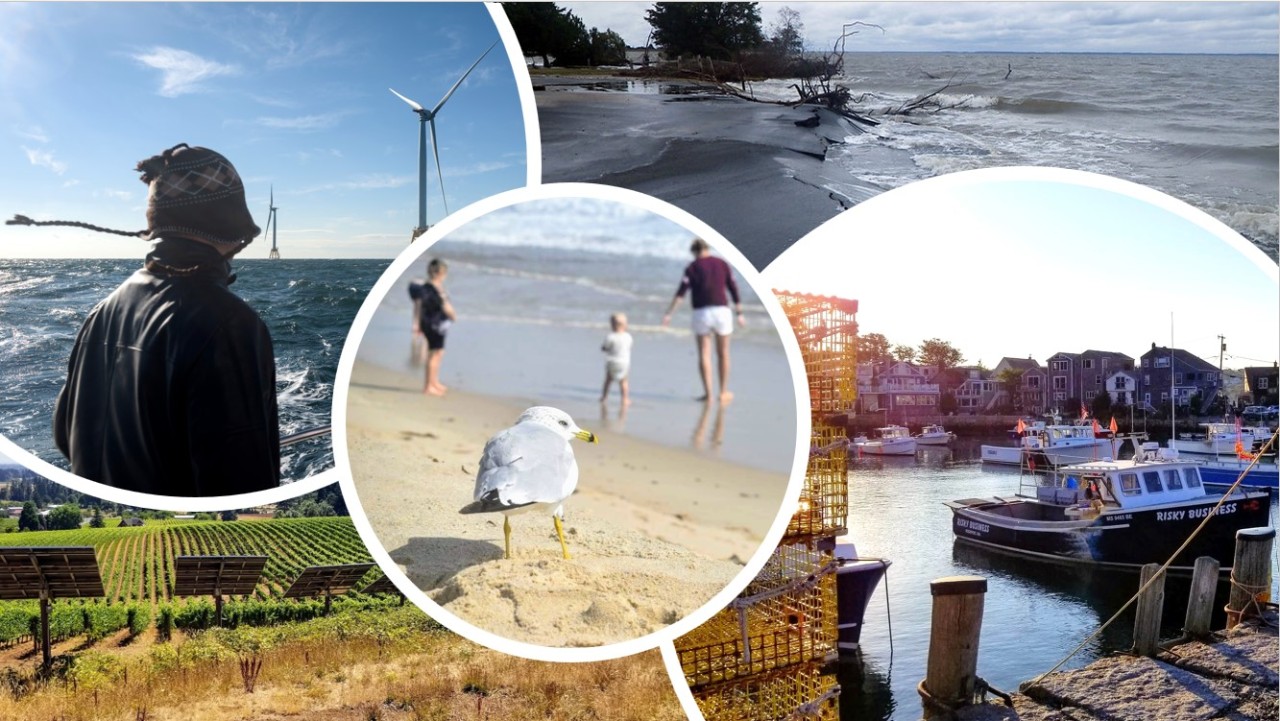
Students in our Environmental Economics (EE) degree programs study the intersection of society and the environment, learning skills to inform a wide range of environmental policies.
The Environmental Economics programs train students in state-of-the-art economics and policy analysis pertaining to environmental issues, combining an emphasis on quantitative approaches with unique strengths in interdisciplinary and marine applications such as fisheries, offshore energy, coastal land use, sea level rise, and climate change. Students study how to manage environmental resources, evaluate the effectiveness of policies, ensure sustainability and environmental justice, and address local and global environmental change. This is a multidisciplinary program, equipping students with the tools and knowledge to understand complex issues from multiple perspectives. Economics provides a common language for understanding the decision-making process in light of financial, policy, and environmental drivers. Students also take classes from the natural sciences and learn how to integrate knowledge across disciplines to address questions of policy. The program is housed in the School of Marine Science & Policy, drawing upon its long tradition of interaction between the natural and social sciences, along with its world-class environmental researchers and facilities. In addition, students have access to courses and faculty expertise at the Biden School of Public Policy & Administration, the College of Agriculture & Natural Resources, and the Alfred Lerner College of Business and Economics. Students build expertise in policy areas of their choosing and acquire cutting-edge research and analytical skills. The EE programs are appropriate for students with quantitative social science backgrounds seeking to better understand environmental issues; STEM students who want to apply their interests to public policy; persons with experience in public or private sectors looking to advance their environmental policy expertise; and recently graduated students continuing their matriculation with focused interests related to environmental economics. Students from diverse backgrounds and international students are encouraged to apply.
- Ph.D. in Environmental Economics
- Masters in Environmental Economics
The Ph.D. in Environmental Economics focuses on the intersection of economics and the environment and trains students to inform decision-making in environmental policy. Students learn state-of-the-art economic and policy analysis methods pertaining to environmental issues, with an emphasis on quantitative approaches, and the program offers unique strengths in interdisciplinary and marine applications such as fisheries, offshore energy, coastal land use, sea level rise, and climate change. The program prepares students for jobs in academia, government, and the private sector (consulting, think tanks, and industry). Applicants who would like to be considered for a competitive fellowship or research assistantships should submit their full application by December 15.
Admissions Requirements
Admission is competitive. It is based on grades, letters of recommendation, and an application essay. A GPA of 3.0 or higher on a 4.0 scale is expected. The SMSP Graduate Committee evaluates each applicant for admission. The Committee reserves the right to interview applicants, but it is not required for admission. A four-year U.S. Bachelor’s degree (or its equivalent) in any academic field from an accredited college or university is required. A student may be admitted to the program with or without a Masters degree. International students must have a TOEFL score of 90 or higher. The International English Language Testing System (IELTS) may be taken in lieu of the TOEFL exam. The University of Delaware requires an overall band score of 6.5 or higher on the IELTS, with no individual speaking score being less than 6. This requirement is waived for international student applicants graduating from degree programs in countries where English is the primary language. TOEFL or IELTS scores must be within the last two years.
Overview of the Degree Requirements
The Ph.D. in Environmental Economics program trains graduate students to achieve the highest level of proficiency in economics and policy analysis pertaining to environmental issues. All doctoral students work closely with faculty on their dissertation research. The coursework provides a solid foundation for original research and extends the student’s knowledge beyond mastering a primary set of knowledge and skills. Students will work with their advisors to determine relevant additional coursework to reach the minimum total of 54 credits. All courses in the program are selected with the approval of the student's advisor. For students holding a Master's degree in an appropriate field of study, the coursework from the Master's degree can be taken into account through a Plan of Study with their advisor (see the program’s policy statement for more information). Outstanding MS students in Environmental Economics at UD may petition to bypass to the Ph.D. program within the first two semesters, subject to recommendation by their advisor and approval by the Graduate Committee and School Director.
Required Courses
- MAST 675/ECON 675 Natural Resource Economics
- MAST 676/ECON 676 Environmental Economics
- MAST 688 Climate Change Economics
- ECON 811 Microeconomic Theory I
- ECON 813 Microeconomic Theory II
- ECON 822 Econometric Theory I
- ECON 823 Econometric Theory II
- UAPP 701 Public Policy or UAPP 707 Public Policy Analysis
- MAST 610 Coupling Natural & Human Systems (substitution of another science course is allowed with approval by advisor)
- 18 elective credit hours approved by advisor
- MAST 969 Dissertation Research
Doctoral Committee
Each doctoral committee shall consist of not less than four and not more than six members. The selection of members of the doctoral committee is made by the student and the advisor. This is forwarded via the School Director and respective college deans to the Graduate College. The doctoral committee is composed of the student's advisor, who is also the chair of the committee, members from the SMSP faculties, and at least one member who holds a doctoral degree and does not have an SMSP appointment. At least two committee members, one of which is the committee's chairperson, represent the major field of interest. Half the committee must consist of SMSP faculty members. There are two milestone requirements for a student to be entered into candidacy. First, satisfactory completion of the dissertation proposal, which is at the discretion of the advisor in consultation with the student’s advisory committee. Second, a qualifying examination must be successfully completed.
Qualifying Examination
To proceed in the program, doctoral students must demonstrate to their advisory committee that they have acquired a comprehensive grasp of their field of study through a qualifying examination. This examination is usually taken near or after the completion of the required credits of coursework. In order to take the qualifying examination, students are ordinarily required to first submit a research proposal and to be in good academic standing. . The qualifying examination includes written and oral components and is prepared and administered by the advisor in consultation with the student’s advisory committee. At least 60 days prior to the examination, the advisor will inform the student of the areas to be examined and the format of the written and oral parts of the examination.
Dissertation Defense
Ph.D. students must write and defend a dissertation. The student’s advisory committee serves as the examining board. The written dissertation is provided to the members of the committee in advance. Once approved, an oral defense is scheduled. The candidate then defends the dissertation before the committee. The dissertation defense is open to the public. Invitations are sent to all CEOE faculty and students at least two weeks prior to the defense date. In the defense, the student presents the proposed research and responds to questions from the committee. The defense is 60 to 120 minutes long and is organized and led by the student’s advisor. Immediately following the defense, the dissertation committee meets to decide whether the dissertation is accepted, rejected, or accepted with conditions.
Sample Schedule
Fall Semester I ECON 811 Microeconomic Theory I (3 cr.) ECON 822 Econometric Theory I (3 cr.) MAST 675 Nat Res Economics (3 cr.) Spring Semester I ECON 813 Microeconomic Theory II (3 cr.) ECON 823 Econometric Theory II (3 cr.) MAST 676 Env Economics (3 cr.) Fall Semester II UAPP 701 Public Policy (3 cr.) MAST 688 Climate Change Economics (3 cr.) MAST 610 Coupling Natural & Human Systems or other Natural Systems Elective (3 cr.) Spring Semester II Electives (9 cr.) Fall Semester III Electives (9 cr.) Spring Semester III Pre-Candidacy credits Approve advisory committee Complete qualifying exams Defend dissertation proposal Fall/Spring IV and Fall V Candidacy credits Spring V MAST 969 Dissertation Research Defend dissertation All full-time graduate students are required to attend departmental or college seminars in their fields of study. Students will also make presentations at departmental or college seminars. Students are encouraged to attend other University seminars that may be pertinent to their research.
For more information on degree requirements, visit the UD Course Catalog and review the current SMSP graduate policies .
Our program offers a unique blend of economics, policy, and natural science that is advantageous to analysts working in interdisciplinary teams on environmental policy issues. Examples of job placement are the U.S. Environmental Protection Agency, National Oceanic and Atmospheric Administration, Delaware’s Department of Natural Resources and Environmental Control, Research Triangle Institute, Natural Resources Defense Council, and DuPont.
Admission is competitive. It is based on grades, letters of recommendation, and an application essay. A GPA of 2.5 or higher on a 4.0 scale is expected. The SMSP Graduate Committee evaluates each applicant for admission. The Committee reserves the right to interview applicants, but it is not required for admission. A four-year U.S. Bachelor’s degree (or its equivalent) in any academic field from an accredited college or university is required. International students must have a TOEFL score of 90 or higher. The International English Language Testing System (IELTS) may be taken in lieu of the TOEFL exam. The University of Delaware requires an overall band score of 6.5 or higher on the IELTS, with no individual speaking score being less than 6. This requirement is waived for international student applicants graduating from degree programs in countries where English is the primary language. TOEFL or IELTS scores must be within the last two years.
All students in the M.S. program are required to complete a minimum of 33 graduate credits. Students graduating with the MS in Environmental Economics degree are prepared to conduct economic and policy analysis at all levels of government and in the private sector (consulting, interest groups, think tanks, industry, etc.). They are trained in the essential principles of environmental and resource management, quantitative analytical methods--including data handling, model estimation, and interpretation--policy analysis tools, and effective communication skills.
- SPPA 704 Advanced Quantitative Methods
- MAST 610 Coupling Natural & Human Systems (substitution of another science course is allowed with approval by the program)
- 6 elective credit hours approved by the program
- MAST 663 Decision Tools for Policy Analysis
- MAST 664 Environmental Issue Capstone
A student may write an analytical paper in lieu of the capstone experience, with the approval of an SMSP or SMSP-affiliated faculty member. The analytical paper is an article-length paper targeting publication in an environmental economics or policy journal.
Fall Semester I ECON 811 Microeconomic Theory I (3 cr.) MAST 675 Nat Res Economics (3 cr.) MAST 610 Coupling Natural & Human Systems or other Natural Systems Elective (3 cr.) Spring Semester I MAST 676 Env Economics (3 cr.) SPPA 704 Advanced Quantitative Methods (3 cr.) Elective (3 cr.) Fall Semester II UAPP 701 Policy Analysis (3 cr.) MAST 663 Decision Tools for Policy Analysis (3 cr.) MAST 688 Climate Change Economics (3 cr.) Spring Semester II MAST 664 Environmental Issue Capstone (3 cr.) Elective (3 cr.)
Capstone Project
The capstone is a central part of the student experience and includes a setup course taken in the preceding semester. The capstone is developed with input from faculty across SMSP, is designed to address a specific real-world policy problem, and is sponsored by an outside client. Students work in small groups on the assigned project using skills and knowledge acquired in the classroom. The outside sponsor can be at the local, national, or international level and might, for example, include agencies such as Delaware’s Department of Natural Resources and Environmental Control, the U.S. Environmental Protection Agency, the U.S. Department of the Interior, the World Bank, or the Food and Agriculture Organization of the United Nations. The sponsors change from year to year. The SMSP faculty work with sponsors to design each year’s capstone projects.
APPLY NOW >
Grad resources >.
- Future Students
- Parents and Families
Environmental and Natural Resource Economics
College of the environment and life sciences, environmental and natural resource economics ph.d..
- Comprehensive Examinations
- Dissertation
There is a strong demand for our Ph.D. graduates both in the private and public sector. These jobs range from positions in academia, in government agencies concerned with resource management, in some of the nation’s best private consulting firms concerned with environmental issues, in industries harvesting our natural resource stocks, and in non-governmental organizations.
You’ll work with faculty members who are well-known for their research in environmental and resource, including marine and terrestrial resource management, marketing, and ecosystem services. There is a special focus on fisheries management, marine pollution, water quality, renewable energy, and other resource use issues in the coastal zone.
Graduate Program Director: [email protected] Graduate Admissions: [email protected]
University Program in Environmental Policy (UPEP)
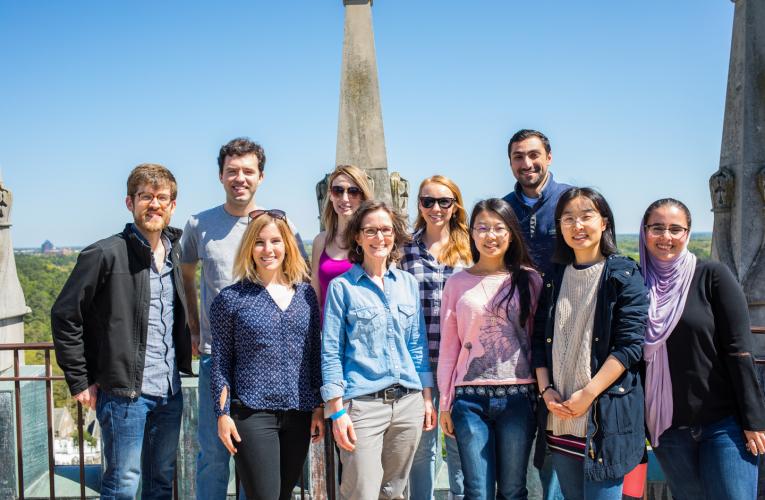
Identifying policy solutions to environmental challenges requires a command of social sciences, alongside topical knowledge and understanding of relevant policy processes. Duke's University Program in Environmental Policy (UPEP) PhD is a 5-year program for intense research training, combining disciplinary specialization − in economics or political science − with an emphasis on understanding policy settings and the precise nature of the problem we hope to solve with policy. That requires integrating multiple perspectives to frame useful applications of disciplinary rigor.
Our students and faculty conduct world-class research, in domestic and international contexts, on a wide array of topics in environmental economics, policy, and politics. Graduate placements have included academic positions in disciplinary departments, interdisciplinary units, and professional schools and professional positions in domestic and international public agencies, environmental organizations, research institutes, and consulting firms.
The UPEP PhD program is jointly administered by the Nicholas School of the Environment and the Sanford School of Public Policy. It draws on the extensive resources of both schools, as well as numerous departments and research institutes across Duke University. UPEP students work in close proximity to PhD students in other disciplines, within each School as well as across Duke. We have close affiliations with the Nicholas Institute for Energy, Environment & Sustainability and the Duke Global Health Institute .
UPEP builds on a long history of Duke University engagement with environmental policy issues. The predecessors of the Nicholas School—the School of Forestry, the Marine Lab, and the Department of Geology—were founded in the 1930s. The Sanford School of Public Policy traces its history to the formation of Duke’s Institute of Policy Sciences and Public Affairs in 1971. Both schools have offered environment-focused PhD training for many years. In 2010, UPEP was created to bring together groups engaged in social science research and training for environmental policy.
Applying to UPEP
UPEP applicants should apply directly to the Duke Graduate School . All doctoral students must enter the program in the fall.
We welcome applicants from diverse academic, cultural, socioeconomic, and professional backgrounds. Approximately 3-5 students are projected to enter the program each fall, for a total of 20-25 students enrolled at any given time.
Admissions Requirements
Admission to the program is extremely competitive, with less than 10 percent of applicants typically offered admission. Applicants should have a record of high academic achievement and the potential to become leading researchers on environmental policy issues. Although the program’s admissions committee evaluates applicants from a comprehensive standpoint, successful applicants will likely have:
- High GPA scores.
- Personalized letters of recommendation that attest to the applicant’s scholarly ability.
- Research interests that overlap those of one or more UPEP faculty members.
- Applicants should clearly specify the preferred concentration in the personal statement. Adequate preparation for PhD-level training in either economics or political science is an important consideration in admissions.
Matching with Faculty
UPEP conducts program-level admissions review to evaluate applicants’ backgrounds and interests and find matches with potential advisors. Applicants may contact faculty members individually, but it is not necessary to secure an advising commitment in advance in order to be accepted into the program.
To identify faculty members with research interests similar to yours, consult the active UPEP advisor list in the UPEP Handbook and explore the Nicholas School Faculty Database and the Sanford School Faculty Directory .
Other Areas of Study
Candidates should have a strong interest in either the economic or political aspects of environmental studies . If you are primarily interested in other areas, consider the following doctoral programs instead:
- If you are interested primarily in natural science aspects of the environment, consider applying to the Nicholas School’s PhD program in Environment , PhD program in Earth and Ocean Sciences , or PhD program in Ecology .
- If you are interested in studying marine resource issues from social science perspectives other than economics or political science, consider applying to the Nicholas School’s PhD program in Marine Science and Conservation .
- If you are interested in an applied social science degree without a specific focus on the environment, consider applying to the Sanford School’s PhD program in Public Policy Studies .
Faculty Who Advise UPEP Students
Nicholas faculty.
- Elizabeth Albright
- Lori Bennear
- Brian Murray
- Marty Smith
- Jeff Vincent
- Erika Weinthal
Sanford Faculty
- Sarah Bermeo
- Sara Sutherland
- Marc Jeuland
- Robyn Meeks
- Subhrendu Pattanayak
- Alexander Pfaff
PhD Students in UPEP
Current students.
Savannah Carr-Wilson
Maya Chandrasekaran
Xingchen Chen
Alex Diaz Herrera
Ryan McCord
Dylan Munson
Gabriela Nagle Alverio
Chrissie Pantoja Vallejos
Matthew Reale-Hatem
Paula Sarmiento
Zhenxuan Wang
Ben Weintraut
Updated 10/2023
UPEP fosters interaction among students, Duke faculty, faculty at neighboring universities (in particular North Carolina State University and the University of North Carolina at Chapel Hill), and visiting researchers by co-sponsoring two seminar series that meet regularly during the academic year:
- Environmental Institutions Seminar Series (held at Duke).
- Triangle Resource and Environmental Economics Seminar Series (held at Research Triangle Institute).
UPEP runs its own internal biweekly seminar in which mostly students present to the other students and faculty.
Students also participate in numerous other seminars sponsored by the Nicholas School, the Sanford School, the Departments of Economics and Political Science, and other schools, departments, institutes, and centers at Duke and area universities.
Institutes & Centers
Students in the program interact with researchers at several institutes and centers at Duke, including:
- Nicholas Institute for Energy, Environment & Sustainability
- Duke Global Health Institute
- Social Science Research Institute
- Duke Center for International Development
FAQ: Frequently Asked Questions
Below you will find our responses to the most common questions asked by prospective applicants.
General Questions
What is the difference between UPEP and other PhD programs in the Nicholas and Sanford schools at Duke?
UPEP is intended for individuals who are interested in conducting PhD studies in environmental policy with an emphasis on economics or political science, under the supervision of Duke University faculty members who have primary appointments in the Nicholas or Sanford schools.
Other PhD programs at Duke are probably more appropriate for you if you are interested in natural science aspects of the environment, purely disciplinary programs in economics or political science, fields of public policy other than environmental policy, or studying marine resource issues from perspectives other than economics or political science.
If you are still not sure which program to apply to, please contact the faculty members whose research interests you and ask them which programs admit students that they can supervise.
What kinds of careers does UPEP prepare students for?
A variety of organizations hire individuals with PhDs in environmental policy, including universities, research institutes, government agencies, private-sector consulting firms, and NGOs.
Is UPEP an interdisciplinary program?
UPEP is interdisciplinary in the sense of requiring students to learn about two important dimensions of environmental policy—economics and politics—and encouraging them to develop a basic understanding of natural science aspects of the issues that interest them. It emphasizes, however, the development of disciplinary expertise in either economics or political science as applied to environmental policy issues.
What kind of financial aid will I receive if I am admitted?
Details will be provided in your offer letter.
Can you send me a brochure on UPEP?
All information on UPEP is web-based. Please contact the UPEP Director of Graduate Studies Assistant (DGSA, [email protected] ) if you are unable to find the information you are seeking on this website.
Does Duke have a Master’s program in Environmental Policy?
Duke has a Master of Environmental Management (MEM) program, which is administered by the Nicholas School and includes an Environmental Economics and Policy concentration , and a Master of Public Policy (MPP) program, which is administered by the Sanford School.
Does Duke have a joint JD/PhD program in environmental policy?
You can earn both a JD and an Environmental Policy PhD from Duke in the following way. Begin by applying to the three-year JD/MA program, with the MA in either Environmental Science and Policy (through the Nicholas School) or Public Policy Studies (through the Sanford School). Please contact the Duke Law School for more information on the JD/MA program. In the final year of the JD/MA program, apply to UPEP like any other applicant. Depending on the courses taken during the JD/MA program, the number of additional years required to complete the UPEP PhD might be reduced from 5 years to 4 years, but probably not by more.
Program Requirements
How long does the program take to complete?
Typically 5 years. You can see illustrative timelines for the environmental economics and environmental politics concentrations in the UPEP Student Handbook .
Are economics and political science the only concentrations under UPEP?
Currently, yes.
Do I need to decide on my concentration (economics or concentration) when I apply?
Yes. You should state your intended concentration in your application. Applicants who are unsure about their concentration will not be admitted.
What are the requirements of each concentration?
Please see the UPEP Student Handbook for program and curriculum details.
Do I need to identify a prospective advisor before I apply?
No, but your chances of admission will increase if your application indicates that you have identified one or more faculty members in the Nicholas or Sanford schools whose research interests are similar to yours. You are welcome to communicate with faculty members before you apply, but please note that they cannot tell you whether you will be admitted. Admission decisions are made by the Duke Graduate School, as advised by the UPEP admissions committee, not by individual faculty members.
How do I identify faculty members who might be interested in advising me if I am admitted?
Please see the “UPEP Faculty” listed above.
Will I be assigned an advisor if I am admitted?
Yes. You will be assigned an advisor when you are admitted. Your advisor will likely be a faculty member that you have mentioned in your application. Another faculty member will be assigned, however, if none of the faculty members that you mention is available or if another faculty member is deemed to be a more suitable advisor for you. Assigning an advisor at this early point in the program ensures that you will have a faculty member who will take responsibility for advising you on course selection, discussing your research interests, assisting you in obtaining grants and fellowships, and in other ways helping you complete the program successfully.
Can I change my advisor?
Yes. Students interested in changing advisors should contact the UPEP Director of Graduate Studies.
Can I work with only my advisor as a teaching assistant (TA), a research assistant (RA), or on my dissertation research?
No. TA assignments are made independently of advisor assignments, although you will likely serve as a TA for your advisor at least once. RAships depend on funding availability. You can serve as an RA for either your advisor or another faculty member. UPEP students form dissertation committees consistent with Duke Graduate School rules, and members of the committee other than your advisor often play a large role in supervising aspects of the research.
Admissions Process
How do I apply to UPEP?
You apply through the Duke Graduate School.
When is my application due?
The application deadline is posted on the Duke Graduate School website . Late applications are generally not considered.
Can I enter the program during the spring semester instead of the fall semester?
No. All students must enter during the fall semester.
Do I need to visit Duke before I apply?
No. If you are interested in visiting, please contact the faculty members whose research most interests you and arrange a time to visit when they are available. You will be responsible for making and paying for your own travel arrangements. If you are admitted to UPEP, then you and other admitted students will be invited to visit Duke in mid-March, with the costs of that visit being covered by Duke up to a budgeted amount.
How are admission decisions made?
UPEP has an admissions committee, which meets in early January to review all of the complete applications submitted to Duke Graduate School. Incomplete applications are not reviewed. Based on the admission committee’s findings, the UPEP Director of Graduate Studies (DGS) provides recommendations to the Duke Graduate School as to which students should be admitted. The Graduate School makes the official admission decisions.
When will I find out if I have been admitted?
Typically by the middle of February.
When must I decide whether to accept Duke’s offer of admission?
This information will be in your offer letter. The date is typically in mid-April.
If I am admitted to the program, can I defer admission?
Ordinarily no, but deferrals may sometimes be granted for medical reasons.
Will I automatically be considered for other PhD programs at Duke or for a Master’s program if I am not admitted to UPEP?
No. Your application to UPEP is only for UPEP.
If I am not admitted to UPEP, should I enter another program and then apply for a transfer to UPEP?
You are welcome to do this, but there is no guarantee that it will increase your chances of admission. You will be required to reapply through the normal process, and your application will be reviewed with along with those from first-time applicants.
I applied to the program last year but was not admitted. I would like to reapply. Can Duke transfer my scores, transcripts, and other materials to this year’s application?
No. You must submit a new application.
Related News
Studying the role of desalination in water scarcity and management, new project aims to combat toxic power dynamics and enhance equity in phd education.
- Utility Menu
Subscribe to our mailing list Subscribe to Robert Stavins' blog Environmental Insights Podcast

HEEP Faculty Fellows Featured in ‘The Palgrave Companion to Harvard Economics'

Robert Stavins Moderates Climate Action Week Panel on “Strategies for Mitigating Global Methane Emissions”
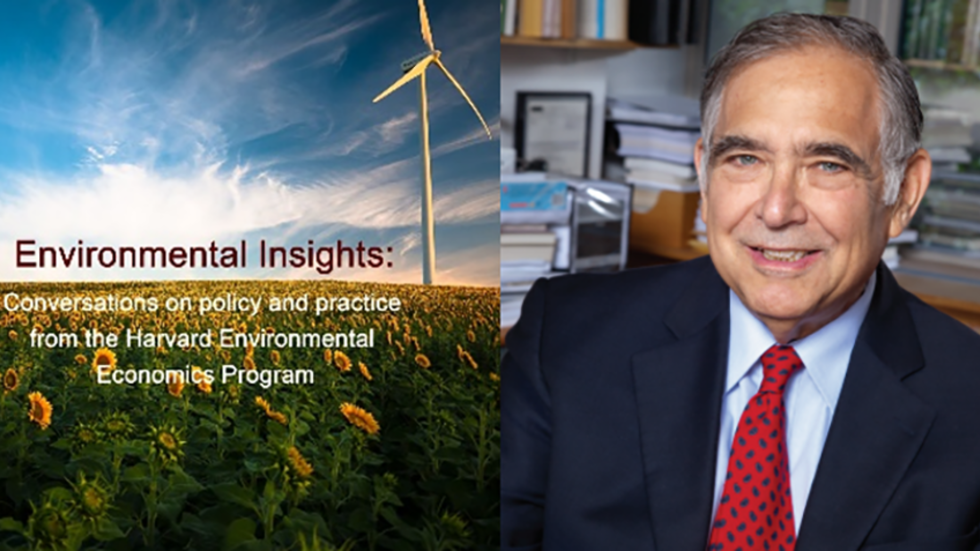
Economist Richard Zeckhauser Argues for More Climate Adaptation Efforts in Newest Episode of “Environmental Insights”
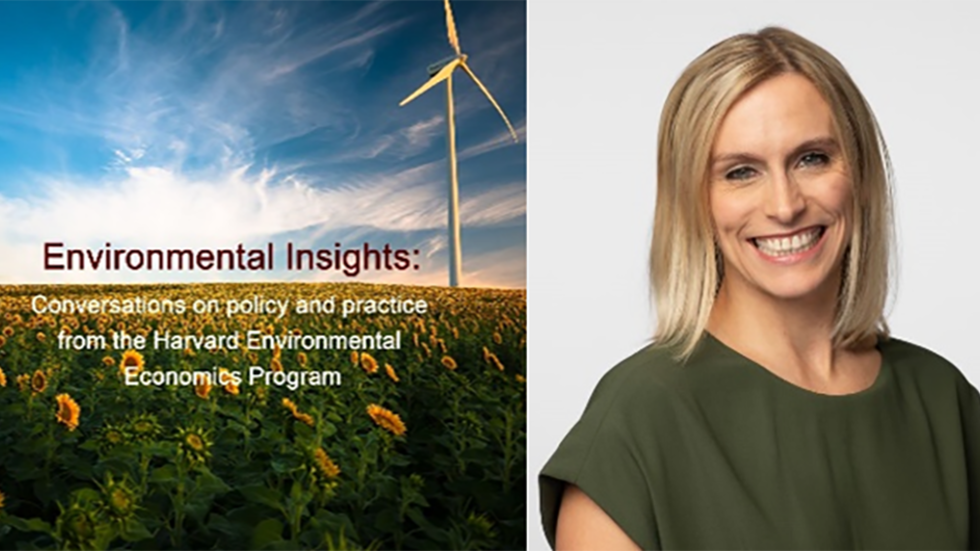
Amy Harder Lauds Positive Outcomes of COP 28 in New Episode of “Environmental Insights"
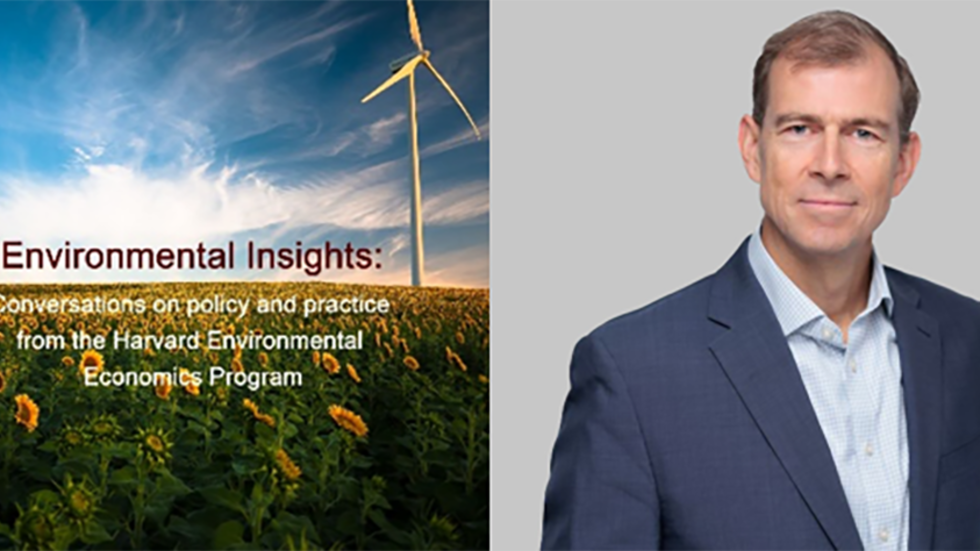
Nat Keohane Analyzes the Prominent Issues Central to COP 28 in New Episode of “Environmental Insights”
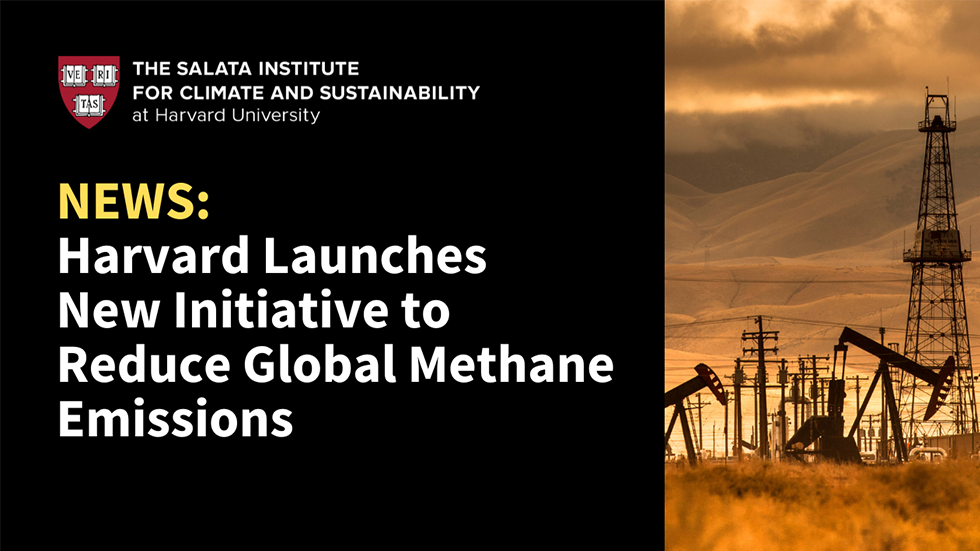
Salata Institute Launches Initiative to Reduce Global Methane Emissions
Latest news.

Current and Former HEEP Faculty Fellows Featured in ‘The Palgrave Companion to Harvard Economics’
Harvard Environmental Economics Program (HEEP) Director Robert Stavins and other current and former HEEP Faculty Fellows are featured in The Palgrave Companion to Harvard Economics , ... Read more about Current and Former HEEP Faculty Fellows Featured in ‘The Palgrave Companion to Harvard Economics’

Promoting the Next Generation of Climate Economics Scholars
On June 17, 2024, Professors Joe Aldy and Rob Stavins co-hosted the Harvard Climate Economics Pipeline Workshop.... Read more about Promoting the Next Generation of Climate Economics Scholars

HEEP Director Robert Stavins Moderates Climate Action Week Panel on “Strategies for Mitigating Global Methane Emissions”
Efforts to measure and mitigate the impact of methane emissions was the topic of discussion last Monday (June 10, 2024) at a panel convened as part of Climate Action Week in the Northwest Building, sponsored by Harvard’s Salata Institute for Climate and Sustainability and moderated by Harvard Environmental Economics Program (HEEP) Director Robert Stavins . ... Read more about HEEP Director Robert Stavins Moderates Climate Action Week Panel on “Strategies for Mitigating Global Methane Emissions”
Learn about HEEP
HEEP is a university-wide initiative addressing today's complex environmental challenges and is based in the Harvard Kennedy School ’s Mossavar-Rahmani Center for Business and Government . Learn more by reading director Robert Stavins' welcome message .
Environmental Insights Podcast
Recent publications.
The Infrastructure Investment and Jobs Act, the CHIPS and Science Act, and the Inflation Reduction Act authorized and appropriated unprecedented spending and tax expenditures to decarbonize the American economy. In the spirit of “build back better,” this paper examines how integrating evaluation in the design and implementation of these new clean energy policies can facilitate the learning necessary for policymakers to make policy better over time. It draws lessons from two case studies: (1) on institutionalizing evaluation based on the experience with regulatory review, and (2) on conducting evaluation based on the research literature assessing the 2009 Recovery Act’s clean energy programs. The paper identifies in recent legislation the programs and their characteristics amenable to various evaluation methodologies. The paper closes with recommendations for a clean energy program evaluation framework that would enable implementation of climate-oriented learning agendas under the Evidence-Based Policymaking Act.
Keywords: program evaluation, learning agendas, renewable energy, energy efficiency
News from the Harvard Project on Climate Agreements
Hpca conversations on climate change and energy policy.
The Harvard Project on Climate Agreements is conducting a series of virtual forums addressing key issues in climate-change and related energy policy. Each forum will feature an expert guest and will be moderated by Robert Stavins, Director of the Harvard Project.
We hope you can join us!
Next Scheduled Event:
To access recordings and transcripts of past events, please go to the HPCA Conversations Series webpage.
University of California, Santa Barbara

Become a leader in solving environmental problems through interdisciplinary research
Phd in environmental science and management.
Bren’s PhD in Environmental Science and Management is a doctoral program designed to develop the broad knowledge, analytical powers, technical skills, and innovative thinking required to be a leader in your field.
As a Bren doctoral student you have the opportunity to engage in research that crosses disciplines, and to take courses at the Bren School or in other renowned UCSB departments, such as geography, ecology, earth science, economics, political science, and marine biology. Choose from a research track in either Natural Sciences or Engineering, or in Social Sciences.
As a student in the Bren PhD program, you'll benefit from the school’s superb facilities, smaller size, close faculty mentorship, academic excellence, and opportunities to work across disciplines.
The Bren PhD program is mentorship-based; you will work closely with at least one Bren professor in their area of expertise. Your sponsor serves as your student advisor and the chair of your PhD committee. This faculty sponsor is also responsible for providing intellectual support and academic and career advice, as well as assisting you to obtain financial support from Graduate Student Researcher positions, Teaching Assistant positions, fellowships, and other areas of support.
The PhD program is intended to be full-time and courses are offered at the UC Santa Barbara campus. Currently, the Bren School does not offer any online degree options.
Your future as a leader in solving environmental problems begins with being prepared for admission to the PhD in Environmental Science and Management at the Bren School. The admissions team is here to answer your questions about eligibility, the application process, research, faculty sponsorship, and how to choose your path in a PhD program in environmental science and management.
The Bren PhD program academic requirements are highly individualized for your mentorship-based experience. The PhD in Environmental Science and Management is a research degree awarded upon demonstration of academic excellence and performance of original research. There is no specific unit requirement, though there are required interdisciplinary seminar courses that enrich your experience and help you complete research with integrity. For students also completing an optional PhD emphasis or certificate, additional requirements and coursework may apply.
PhD Emphases & Certificates
Enhance your PhD experience by adding an optional PhD emphasis and/or certificate. Students have several opportunities for:
Climate Science and Climate Change
Develop a broader understanding of the physical principles governing climate on Earth, climate changes associated with natural variability and anthropogenic forcings, and the impacts of climate change on the environment and society.
Economics and Environmental Science
Acquire a deep and expert knowledge of economics and the complex connections between the environment and economics.
Environment and Society
Receive additional training and mentorship in interdisciplinary studies such as global political economics, social justice, environmental politics, and population ecology.
Information Technology and Society
Explore further themes of the societal implications of information technology, including studies in media, science education and instruction, and data visualization.
Management Practice
Gain an in-depth understanding of entrepreneurial, business, and management practices in global technology-based companies.
PhD Research
The work of Bren PhD students is a balance of research and application to both understand and solve complex environmental problems. In pursuit of their passion in environmental science and management, Bren doctoral students are taking on environmental challenges in a range of topics, including climate change impacts, aquaculture and sustainable fisheries, wildlife conservation, coral reef resilience, fate and transport modeling, life cycle assessment, environmental politics, nanomaterials and micropollution, renewable energy resources, deforestation, and so much more.
Gain inspiration for your research topic from Bren's current PhD research projects and archive of dissertation titles.
Career Development
Whether you’re looking to apply your PhD to an academic or non-academic career path, we’re here to connect you to the advising, resources, and contacts you need to learn relevant job search skills and put your expertise to practice via real-world impacts. In addition to individualized, field-specific career guidance from your faculty advisor(s), as a Bren doctoral student, you’ll have access to supplemental career support from our highly celebrated Career Development team as well as the dedicated career and professional development staff at UCSB’s Graduate Student Resource Center .
Bren PhD alumni have gone on to successful positions as scientists, faculty members, researchers, managers, fellows, technical officers, and more within a variety of settings, including universities, corporations, think tanks, research institutes, consulting firms, and government agencies across the U.S. and globe.
Alumni Network Access and 24/7 Career Resources
From your first day at Bren, you’ll have access to BrenConnect, Bren’s unique career resources and alumni networking platform, where you can peruse fresh job listings, find and connect with Bren alumni, and access Bren-specific career guidance articles. Want to talk to a Bren grad who works at your dream organization? More than 75% of alumni are BrenConnect users.
Career Programming and 1-on-1 Guidance for Your Unique Career Journey
During your time at Bren, you’ll enjoy open access to the 40+ career workshops, speakers, and events hosted by the Career Development Team for Bren master’s students each year, allowing you to pick what and when to attend based on your needs and graduation timeline. To provide further guidance to doctoral students, the Career Development Team also hosts 1-2 PhD-specific workshops each year and partners with UCSB’s Graduate Student Resource Center (GSRC), which provides a full suite of additional workshops. These sessions cover academic and non-academic career topics, from how to write a teaching statement for faculty applications to how to leverage LinkedIn for a non-academic job search. In addition to individual guidance from your faculty advisor(s), both the Bren and GSRC career staff are available for one-on-one career advising on topics such as applying, interviewing, negotiating, and more.
This is a graduate school experience like no other where you'll have access to faculty mentors, potential employers, internship opportunities, and a professional network of alumni from day one. The Bren grad school experience has been designed to open doors for students to make a difference in the world. Our students often say they make friends and colleagues for life during their time at Bren.
PhD Symposium
PhD students at Bren organize and host an annual PhD Symposium in winter quarter, an event where PhD students give flash talks and present their research via a poster session to the campus community and general public. Students will also find opportunities to volunteer as part of the annual symposium committee.
PhD Retreat
Each year, Bren PhD students, faculty, and staff organize a retreat to welcome new students to the PhD program. The location of the retreat varies year to year and has been held in inspiring locations in nature, such as Yosemite and the California coast.
Are you ready to solve environmental problems?
Request more information, get to know the Bren School, and start planning your application today.

- Advisory Group
- Visiting Fellows
- Jobs & Fellowships
Themes & Topics
- Electric Power
- Energy Efficiency
- Fossil Fuels
- Transportation
- Renewable Energy
- Climate Economics
- Climate Law & Policy
- Climate Science
- Air Pollution
- Conservation Economics
- Environmental Health
Centers & Initiatives
- EPIC Air Quality Fund
- Climate Impact Lab
- E&E Lab
- Abrams Environmental Law Clinic
- Air Quality Monitoring and Data Access
- Energy Impact of Russia Crisis
- Build Back Better on Climate
- Climate Public Opinion
- Social Cost of Carbon
- COP28: Insights & Reflections
- India Legislators Program
- U.S. Energy & Climate Roadmap
- Impact Takeaways
- Opinion & Analyses
- Research Highlights
- All Insights
- In the News
- Around Campus
- EPIC Events
- Faculty Workshops
- Conference Series
- EPIC Career Series
- Energy & Climate Club
- Climate and Energy Lunch & Learn
- Search the site Search Submit search terms
- View Facebook profile (opens new window)
- View Twitter profile (opens new window)
Energy & Environment Economics PhD Field
The Department of Economics and Harris School of Public Policy at the University of Chicago will start offering three new PhD courses on Energy and Environmental Economics in academic year 2016-17. Energy and Environmental Economics (EEE) is a growing research field, owing to increasing interest in the area among researchers and policymakers. This increasing interest is creating strong demand for faculty among leading economics departments, policy schools, and business schools. In academic year 2016-2017, these three new courses can be combined to form a field in Public, Energy, and Environmental Economics. In subsequent years, EEE will be a standalone field, making the University of Chicago the first top economics department to offer a EEE PhD course sequence. This will be accomplished by leveraging faculty expertise in both the economics department and Harris. The course descriptions are below.
The EEE PhD field courses are open to University of Chicago PhD students who have completed the first year of PhD coursework in the Department of Economics, the Harris School of Public Policy, or the Booth School of Business. Students enrolled in other graduate programs at the University of Chicago who have suitable technical backgrounds may also enroll in these courses with the permission of the instructor.
Energy and Environmental Economics I (PPHA 44320/Econ 36730)
This course will emphasize the economics of natural resource production and problems associated with externalities and common property, with a focus on the energy sector. Most lectures will be theoretical in nature, but we will spend considerable time studying applications that have an empirical component. The course has several complementary objectives: (1) provide a solid foundation in concepts like Hotelling’s Rule and Pigouvian taxation that are a prerequisite for understanding modern environmental and resource economics; (2) develop proficiency with theoretical, computational, and empirical tools that will be valuable for future self-directed research; and (3) gain experience in reading, presenting, and discussing modern research in energy and environmental economics.
Energy and Environmental Economics II (PPHA 44330)
This course will cover the theory and evidence on regulatory, tax, and other government responses to problems of market failure. Special emphasis will be given to developing and implementing tools to evaluate the costs and benefits of energy and environmental policies. Other topics will include techniques for measurement of willingness to pay for non-market goods; the economics of climate change; the intersection of Energy and Environmental Economics with development economics; cost-benefit analysis, including discounting; the value of a statistical life; health as human capital; and the economics of energy efficiency.
Energy and Environmental Economics III (PPHA 44340)
Optimal environmental regulation requires an analysis of the trade-offs between market and regulatory imperfections. Market allocations are inefficient in the presence of imperfections such as externalities, market power, and informational asymmetries. On the other hand, government intervention to mitigate these imperfections is not costless, and can even make market performance worse. This course focuses on recent empirical analysis of the costs and benefits of environmental and energy policies, including an introduction to the relevant econometric methodologies such as randomized controlled trials, regression discontinuity designs, bunching analysis, and structural estimation. Topics will include: energy demand and the energy efficiency gap, fuel economy and appliance efficiency standards, non-linear and real-time electricity pricing, wholesale electricity markets, renewable electricity policies, natural gas markets, retail gasoline markets, and technology innovations.
UChicago Community (If applicable)…
- Faculty/Researcher/Staff
- Undergrad Student
- Masters Student
- PhD Student
Interested In…
- General News
- Monthly e-Newsletter
- Student e-Newsletter (weekly)
- Chicago Events
- EPIC-India News & Events
| University of Delaware | ||||||||||||||||||||||||||||||||||||||||||||||||
| ||||||||||||||||||||||||||||||||||||||||||||||||































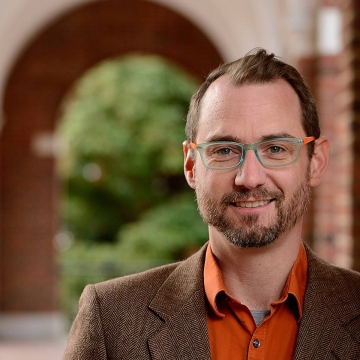

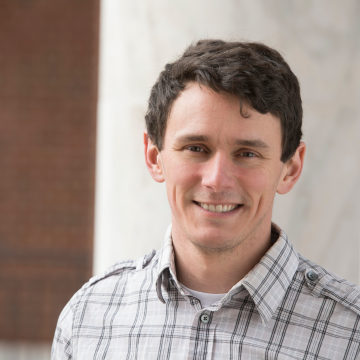

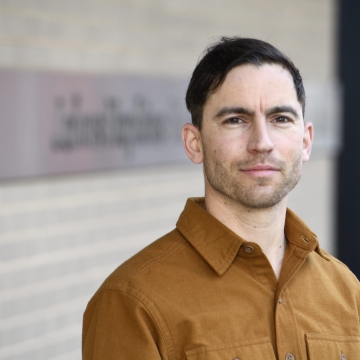



%20_MG_3542-800px.jpg)
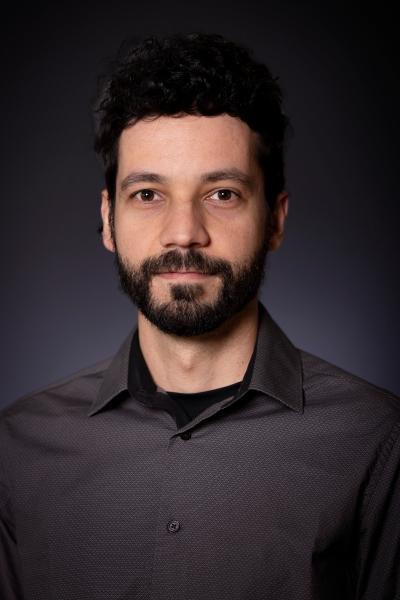

COMMENTS
The Harvard Environmental Economics Program (HEEP) does not grant degrees. Rather, students pursue a Ph.D. degree in Economics, Business Economics, Business Administration, Political Economy and Government, Public Policy, or Health Policy. Those whose dissertation interests focus on environmental and natural resource economics are invited to become Pre-Doctoral Fellows of HEEP.If you are ...
EES Emphasis Director: Christopher Costello. Environmental and resource economics is the study of the connections between economics and the environment. At the core of environmental economics is the recognition that markets often do not provide the right amount of environmental protection, and that some intervention by government, typically through regulation, tax policy, or the establishment ...
The MPhil/PhD Environmental Economics aims to: provide advanced knowledge of the principles and conceptual foundations of environmental economics. equip you with the analytical tools and methodological understanding needed to develop original research in the field. expose you to the most recent developments and debates in environmental and ...
Overview. Our Environment and Sustainability Ph.D. equips students with diverse perspectives to develop profound new ideas, knowledge and approaches to the most important concerns facing people and the planet. The program provides training to develop deep understandings of the structures of current environment and sustainability issues today ...
Environmental Economics: M.S., Ph.D. The Environmental Economics programs train students in state-of-the-art economics and policy analysis pertaining to environmental issues, combining an emphasis on quantitative approaches with unique strengths in interdisciplinary and marine applications such as fisheries, offshore energy, coastal land use, sea level rise, and climate change. Students study ...
Doctoral Program Handbook 2023-2024 (PDF) The environmental economics faculty at Yale F&ES accept a limited number of students each year as part of the Yale F&ES doctoral program, which is conferred through the Yale Graduate School of Arts and Sciences. For full details on the Yale F&ES Ph.D. program, please see the doctoral program website.
The Environmental Economics programs train students in state-of-the-art economics and policy analysis pertaining to environmental issues, combining an emphasis on quantitative approaches with unique strengths in interdisciplinary and marine applications such as fisheries, offshore energy, coastal land use, sea level rise, and climate change.
There is a strong demand for our Ph.D. graduates both in the private and public sector. These jobs range from positions in academia, in government agencies concerned with resource management, in some of the nation's best private consulting firms concerned with environmental issues, in industries harvesting our natural resource stocks, and in ...
Duke's University Program in Environmental Policy (UPEP) PhD is a 5-year program for intense research training, combining disciplinary specialization − in economics or political science − with an emphasis on understanding policy settings and the precise nature of the problem we hope to solve with policy. That requires integrating multiple ...
Efforts to measure and mitigate the impact of methane emissions was the topic of discussion last Monday (June 10, 2024) at a panel convened as part of Climate Action Week in the Northwest Building, sponsored by Harvard's Salata Institute for Climate and Sustainability and moderated by Harvard Environmental Economics Program (HEEP) Director Robert Stavins....
Economics and Environmental Science. Acquire a deep and expert knowledge of economics and the complex connections between the environment and economics. Environment and Society. Receive additional training and mentorship in interdisciplinary studies such as global political economics, social justice, environmental politics, and population ecology.
The Department of Economics and Harris School of Public Policy at the University of Chicago will start offering three new PhD courses on Energy and Environmental Economics in academic year 2016-17. Energy and Environmental Economics (EEE) is a growing research field, owing to increasing interest in the area among researchers and policymakers. This increasing interest...
Environmental Economics (PhD) Print-Friendly Page (opens a new window) Facebook this Page (opens a new window) Tweet this Page (opens a new window) Program Educational Goals: The objective of the degree is to train research-oriented scholars focused on the intersection of economics, policy, and the environment. This requires:
University of East Anglia Faculty of Social Sciences. Economics PhD studentships at a leading university. The School of Economics at UEA is one of the top-ranked economics departments in the UK, proudly combining an internationally-leading reputation for research with the highest standards in teaching and academic support for our students.
High Stakes Investing Under Uncertainty:Evidence from Texas Shale-Oil Producing Firm. Dissertation. View all published research with tagged with this term. Department of Economics. University of Washington. 305 Savery Hall, Box 353330. Seattle, WA 98195. Phone: (206) 543-5955. Fax: (206) 685-7477.
The Environmental and Resource Economics (ERE) field develops student expertise in economic theory and empirical methods for analyzing problems in environmental and natural resource economics. Relevant methods include dynamic optimization and simulation analysis, non-market valuation techniques, hedonic pricing, location theory, and policy ...
Program Description. The University Program in Environmental Policy (UPEP) is a multidisciplinary, research-focused five-year doctoral degree, intended to prepare candidates for positions in applied academic departments and professional schools (e.g., environment and natural resources, public policy, public administration, international affairs), domestic and international public agencies and ...
Environmental and Natural Resources Economics Ph.D. The program offers an opportunity to work on applied and theoretical issues in the area of natural resource economics, with an emphasis on coastal and marine resource development and management. Request Information.
With rising employment opportunities in this field, student demand has also grown for doctoral courses offering rigorous, state-of-the-art training in environmental, natural resource and climate change economics. The MPhil/PhD Programme in Environmental Economics responds to this increased demand and builds on growing research at LSE in ...
Doctoral students enrolled in the program are encouraged to pursue one of UVM's certificates of graduate study including, but not limited to: Ecological Economics, Community Resilience and Planning, Agroecology, Public Health, Sustainable Enterprise, Complex Systems and Data Science, and any relevant new certificate programs; or any 15-credit sequence of electives with adviser permission.
The first two years of the PhD in applied economics and management program include foundational coursework in areas such as economic theory, applied econometrics, and macroeconomic research. Then, you'll progress into general electives, as well as electives related to your concentration area. The heart of the PhD program is your dissertation, and this faculty-mentored, research-based project ...
Environmental Science, Policy and Management. Ph.D. / Full-time, Part-time / On Campus. 4,858 EUR / year. 3 years. The Hong Kong University of Science and Technology Hong Kong, Hong Kong (SAR) Ranked top 0.5%. Top 0.5% of Universities worldwide according to the Studyportals Meta Ranking.
Environmental Economics and Policy look into the economic effects of worldwide environmental policies, through theoretical and empirical study. Environmental Economics studies cost and benefits-related issues of water quality, air pollution, solid waste, global warming, and other environmental problems. Environmental policies deal with the ...
Students pursuing a PhD in environmental engineering at Johns Hopkins have the opportunity to learn from and collaborate with faculty from a variety of disciplines, including chemistry, air pollution and greenhouse gases, energy systems, public health, water quality, and economics.
Print; Got a Question? Ask TOM; Copyright © 2023 The University of Memphis; Important Notice; Last Updated: 8/19/24; The University of Memphis; Memphis, TN 38152
Master's degree in Economics. Minimum 80%, first class average in Master of Arts (MA) Economics degree. A one-page statement of Academic Interest. A GRE score is not required but is recommended for all international students applying to the program.
PhD programme in Economics Our four-year doctoral programme opens doors to exciting career opportunities in a variety of fields. Whether you aim for a future in academia, government departments and agencies, international organizations, or the private sector, our programme will equip you for success.